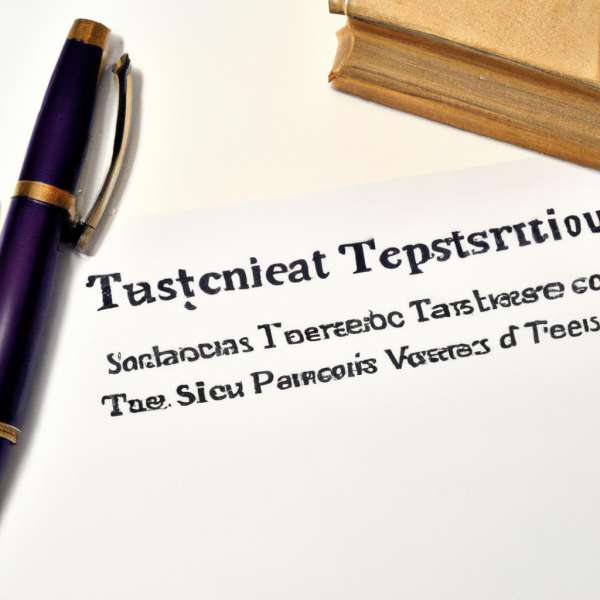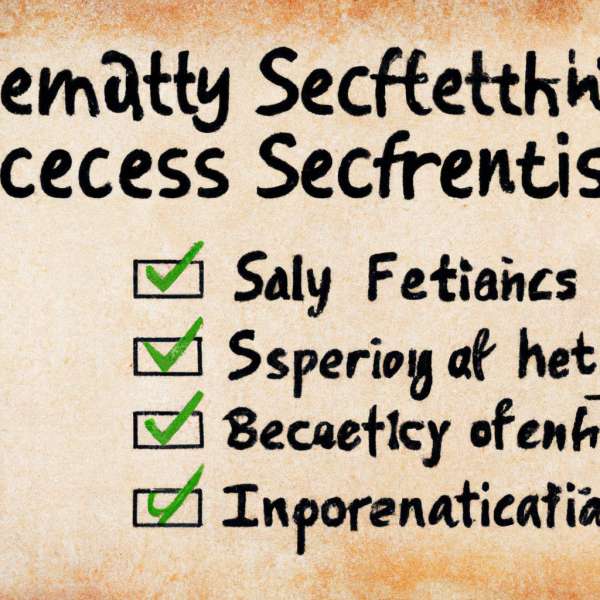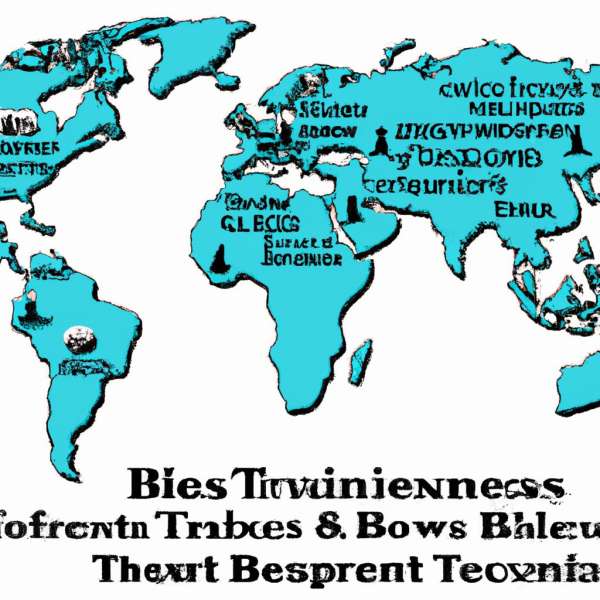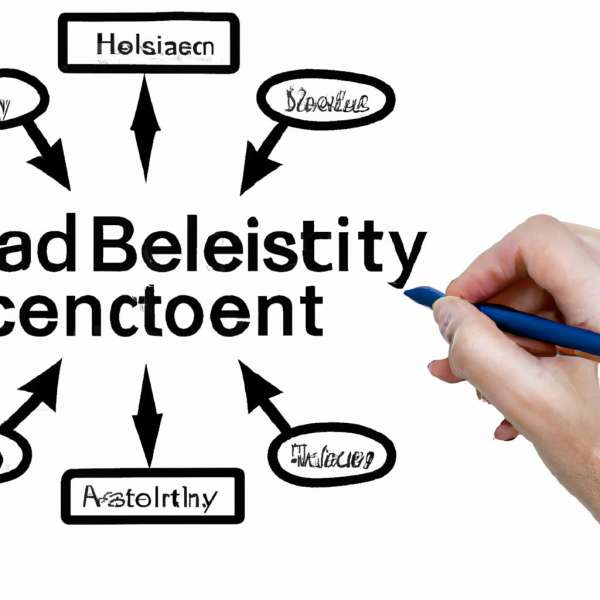In the intricate tapestry of estate planning, testamentary trusts emerge as both a safeguard and a guide, woven into the very fabric of financial foresight. These specialized trusts, created through a will, take shape only upon the death of the testator, ushering in a realm of possibilities for wealth distribution and protection. For many, the concept might evoke images of complex legal jargon and distant financial planning, but testamentary trusts can offer profound benefits—far beyond merely managing assets. They serve as strategic tools, designed to address a host of nuances, from ensuring the welfare of minor beneficiaries to preserving family harmony amidst potential disputes. As we delve into the myriad advantages of testamentary trusts, we’ll uncover how they can empower individuals to craft a lasting legacy, while navigating the often tumultuous waters of inheritance and estate management.
Understanding Testamentary Trusts and Their Purpose
A testamentary trust is a legal arrangement established through a will that comes into effect upon the death of the person creating the trust, often referred to as the testator. This type of trust serves several important purposes, providing both structure and security for the distribution of assets to beneficiaries. Primarily, it allows for a greater level of control over how and when the assets are distributed, which can be particularly beneficial in a variety of circumstances.
One of the main reasons individuals opt for a testamentary trust is the **protection of assets**. By placing assets within a trust, the testator can safeguard them from potential creditors, divorce settlements, or mismanagement by beneficiaries who may not be financially responsible. This measure ensures that the assets are preserved for their intended purposes, whether that be for education, medical care, or simply ensuring a comfortable living for the beneficiaries.
Additionally, **testamentary trusts can provide tax benefits** that can help maximize the value of the inheritance received by beneficiaries. By structuring the trust effectively, it may be possible to minimize estate taxes and create a more efficient transfer process. Beneficiaries may also benefit from a staggered distribution plan that provides them with necessary funds while also encouraging continued investment and saving practices.
| Benefits of Testamentary Trusts | Description |
|---|---|
| Asset Protection | Safeguards assets from creditors and mismanagement. |
| Controlled Distribution | Allows for staggered or conditional distributions to beneficiaries. |
| Tax Efficiency | Helps minimize estate taxes and optimize inheritance value. |
| Support for Dependents | Enables ongoing support for children or dependents after death. |

Enhancing Financial Security for Beneficiaries
One of the most significant advantages of testamentary trusts is the ability to provide a secure financial framework for beneficiaries, ensuring that their needs are met over time. By establishing a testamentary trust, the granter can specify precise terms regarding how and when the beneficiaries will receive their inheritance. This structured approach serves to protect assets from mismanagement, reckless spending, or external threats such as creditors.
Consider these important benefits:
- Protection from Financial Missteps: A testamentary trust appoints trustees who manage the assets, mitigating the risk of beneficiaries making unwise financial decisions.
- Phased Distributions: Trusts can provide distributions at specific intervals, supporting beneficiaries as they grow, mature, and take on new responsibilities.
- Safeguarding Against External Risks: The assets held in a trust are generally shielded from divorce settlements, creditor claims, or irresponsible decisions of the beneficiaries.
- Customized Support: The granter can tailor the trust to meet specific needs, like funding education or healthcare, providing a safety net tailored to individual circumstances.
In many cases, testamentary trusts can also incorporate important provisions ensuring financial security after significant life events. This could look like the following:
| Life Event | Trust Provision |
|---|---|
| Marriage | Adjust distribution amounts to support new familial responsibilities. |
| Education | Allocate funds specifically for tuition and associated costs. |
| Health Issues | Create provisions for medical expenses to ensure well-being. |
This tailored approach not only enhances the financial security of beneficiaries but also fosters a sense of trust and responsibility, allowing them to manage their inherited wealth with confidence and foresight.

Navigating Tax Benefits and Implications
When establishing a testamentary trust, it’s crucial to consider the associated tax benefits and implications that can significantly influence the estate’s overall financial strategy. By effectively navigating these aspects, individuals can optimize the distribution of their wealth while minimizing tax burdens for their beneficiaries. Here are some key points to consider:
- Tax Efficiency: Testamentary trusts can provide a means of splitting income among various beneficiaries. This can lead to overall lower tax rates, as income distributed to a beneficiary in a lower tax bracket may incur less tax than if the income remained in the estate.
- Capital Gains Benefits: Testamentary trusts often allow for the deferral of capital gains taxes until the assets are sold, providing the beneficiaries with more flexibility to manage their inheritance without the immediate tax burden.
- State and Federal Tax Exemptions: In certain jurisdictions, testamentary trusts may qualify for specific exemptions that can reduce or eliminate estate tax liabilities, enhancing the final amount beneficiaries receive.
Understanding the nuances of these tax benefits is vital. A properly structured testamentary trust not only secures assets for future generations but also positions them to manage potential tax liabilities proactively. Here is a quick comparison of how conventional estates and testamentary trusts may face differing tax scenarios:
| Aspect | Conventional Estate | Testamentary Trust |
|---|---|---|
| Income Tax Rate | Single rate for estate | Variable based on beneficiaries |
| Capital Gains Tax | Immediate upon transfer | Deferred until sale |
| Potential Tax Exemptions | Limited options | More strategies available |
By taking advantage of these benefits and clearly understanding the interplay between trust structures and tax obligations, individuals can craft a plan that maximizes both the longevity of their estate and the wealth passed on to their heirs. Careful consideration and strategic planning can ensure that testamentary trusts serve as a robust tool in comprehensive estate planning.

Ensuring Flexibility and Control Over Asset Distribution
Testamentary trusts offer an invaluable opportunity for individuals to maintain control over their assets long after their passing. By setting specific terms for the management and distribution of assets, these trusts ensure that beneficiaries receive their inheritances in a manner that aligns with the creator’s wishes. This flexibility allows a trust creator to designate how and when assets are distributed, providing peace of mind that loved ones are cared for in a way that reflects their unique circumstances.
Key benefits of testamentary trusts include:
- Gradual Distribution: Instead of a lump-sum payment, trusts can be structured to release funds over time, reducing the risk of beneficiaries mismanaging their inheritance.
- Protection from Creditors: Assets held in a testamentary trust may be shielded from creditors, ensuring that the intended beneficiaries are protected financially.
- Control Over Use of Funds: Creators can specify that funds be used for designated purposes, such as education or healthcare, ensuring they support the beneficiaries’ long-term well-being.
Moreover, the ability to adjust the terms of the trust as circumstances change provides an added layer of security. Whether it’s the financial situation of the beneficiaries or changes in family dynamics, the flexibility of a testamentary trust allows for adaptations that meet evolving needs while preserving the intent of the trust creator. This results in a structure that is not only protective but also highly customizable, making it an appealing option for those planning their estate.
Concluding Remarks
testamentary trusts emerge as a strategic cornerstone in the realm of estate planning, offering a harmonious blend of control and support for both grantors and beneficiaries. By establishing these trusts, individuals can navigate the complexities of wealth distribution while ensuring the specific needs and circumstances of their loved ones are met. Whether it’s safeguarding assets from potential creditors, providing for a minor child, or facilitating responsible management of inheritances, a testamentary trust serves as a bespoke solution tailored to each person’s unique familial tapestry. As we embrace the uncertainties of the future, considering the implementation of such a trust can deliver peace of mind, streamlining the legacy we leave behind. So, as you ponder your own estate planning journey, remember that a testamentary trust not only acts as a guiding hand in the present but as a lasting gift for generations to come.


